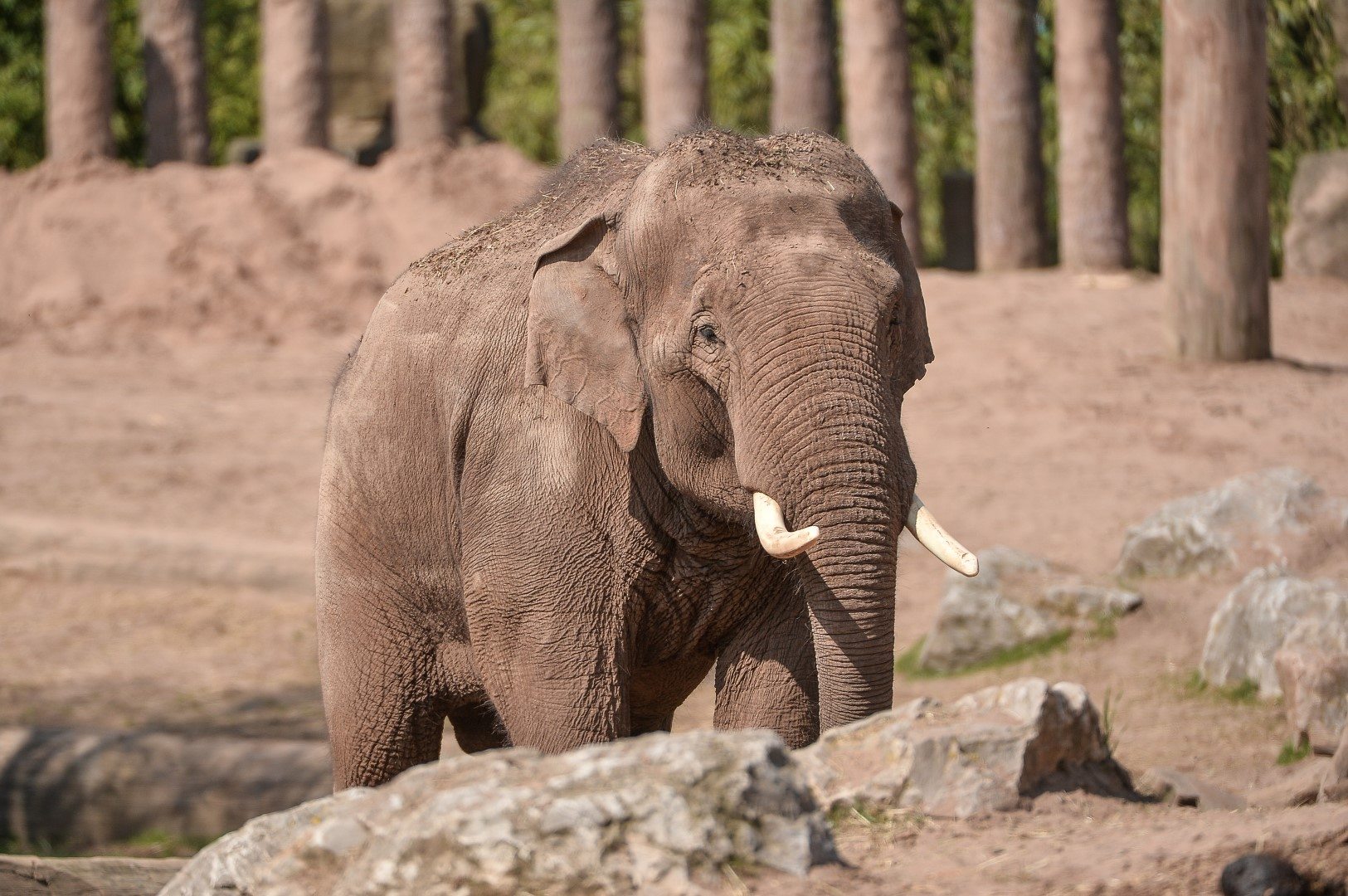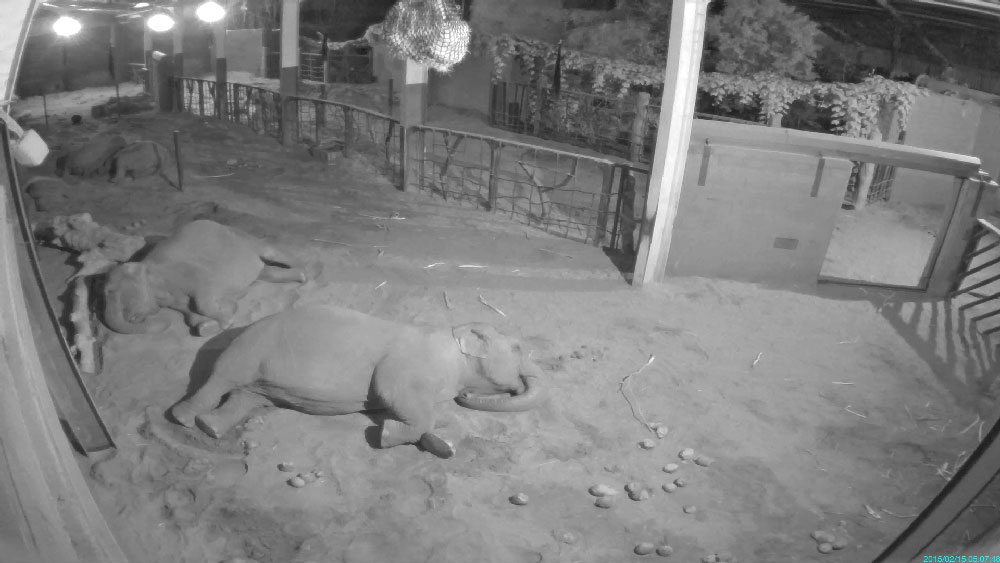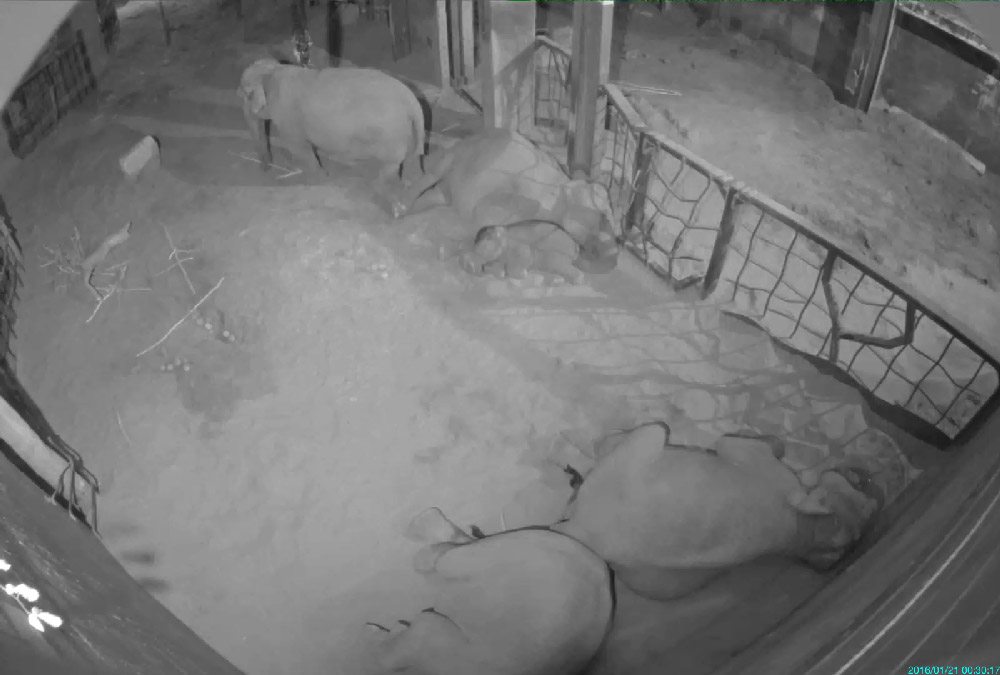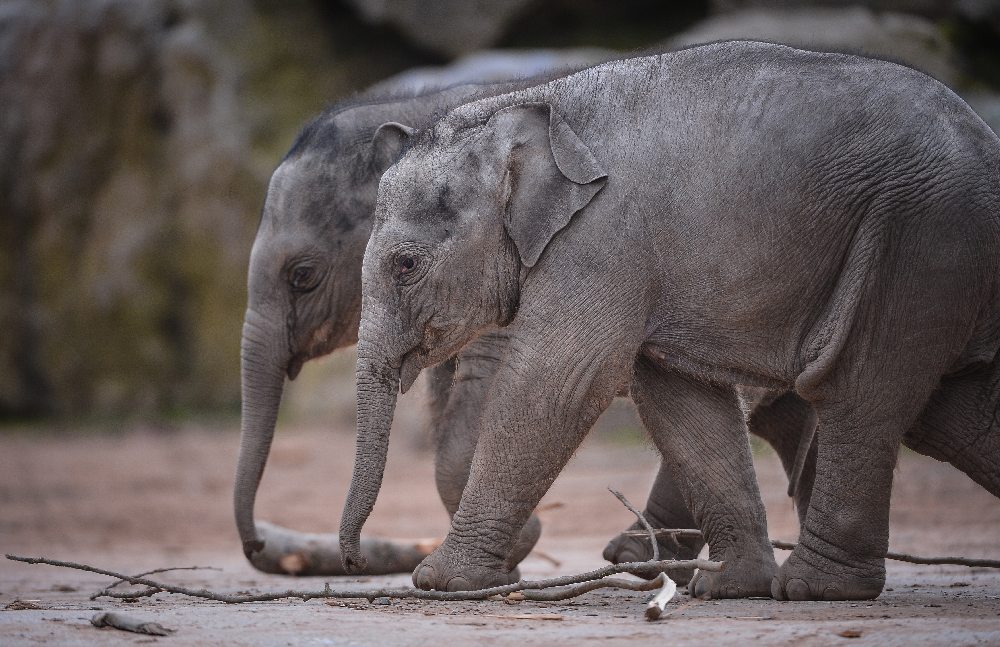
To ensure we are providing the best habitat for the animals at the zoo, many of our projects observe their behaviour and one of these studies, observing the elephant herd, is already helping to advance our knowledge of this remarkable species…
Emma Evison, elephant keeper at Chester Zoo, is working in conjunction with our in-house science team to keep an eye on the behaviour of our elephants, looking at the psychological wellbeing of the herd. She’s been doing this for two years now, here she tells us more about how and why we conduct these studies:
“Over the past few decades scientific advancements have enabled us to have a greater understanding of many animals here at the zoo, one of them being the elephant. We’ve learnt a lot about this beautiful creature. We now know that elephants have a highly developed sense of communication, which means they use all five of their senses to communicate with one another and we’ve also learnt that they are very sociable animals.
“The strength of social bonds between individual elephants has a big influence on cohesion in the whole group and consequently the health and wellbeing of the herd. I’ve been observing the social affiliations of our herd for two years now to give us an insight into our elephant’s psychology.
“So how do you monitor the social affiliations of an elephant herd? We decided the best way of doing this was observing the herd during the night, as this is the time of the day when they give us a unique insight into how they react without us around. Using cameras that are already installed around the house, I watch the sleeping patterns of the herd over a 12 hour period from 7pm to 7am, twice a week. I record when they sleep, when they get up, what time they sleep, who they sleep with, how they sleep, what side they sleep on, where they sleep within the house, and note down if they are touching too.

“One of our main ways to ensure our elephant herd is mentally healthy is to maintain a stable social herd. We have built up a unique herd here, with most of our elephants related to one another, as they would be in the wild. Science has shown us that if elephants are happy in their environment they tend to lie down to sleep and my observations have shown that our current herd do sleep together which is a sign of their physical health and that they are socially compatible.
“I also observe the relationships between the elephants in the herd and it’s great to see bonds develop and grow, as I’ve recently seen with Nandita. Since her birth the herd have become even closer and I’ve been amazed to see the relationship develop between Nandita and her sister Sithami, they are extremely close so much so that Nandita not only suckles from her Mum, Thi, but also from Sithami too. This is what happens in the wild and is remarkable to see; it shows we have a happy healthy family unit that are comfortable in their habitat.

“I really enjoy observing our herd and hope our work monitoring their social affiliations will develop and grow. At the moment I produce a quarterly report for our team, our curator and the science team and I hope to get my work published for the wider zoo community in the near future. We are at the forefront of elephant wellbeing in zoos and the work we are doing here will enable us to gain a deeper understanding of this truly fascinating species.”
Emma Evison has also contributed to the published paper ‘An investigation into resting behaviour in Asian elephants in UK zoos‘. Learn more about the scientific activity that happens right across the zoo, here.

Asian Elephants need your help!!!